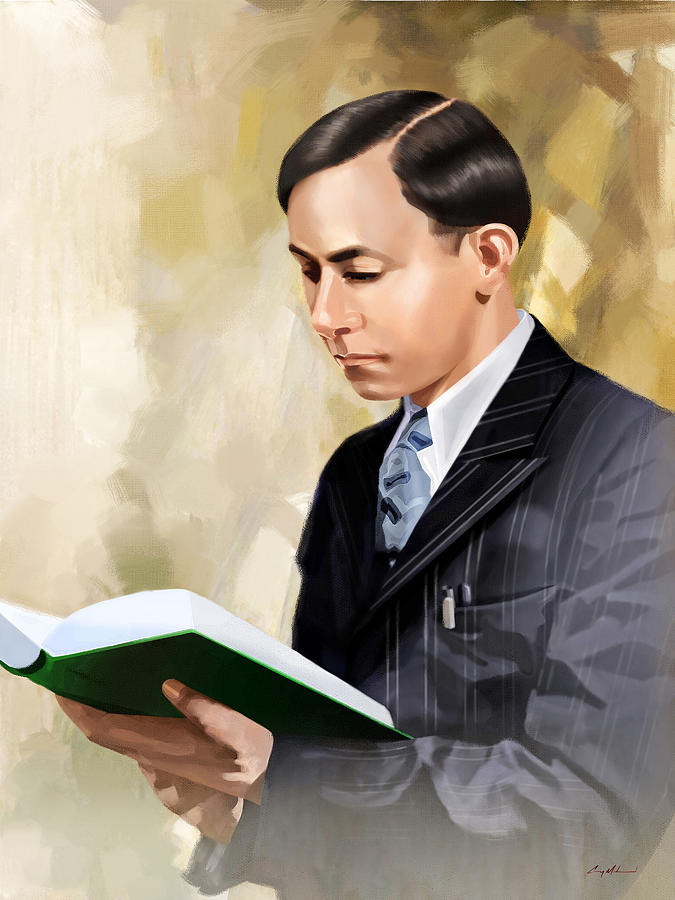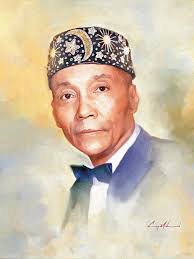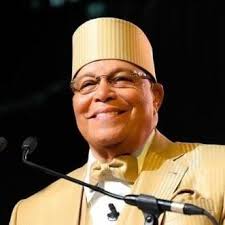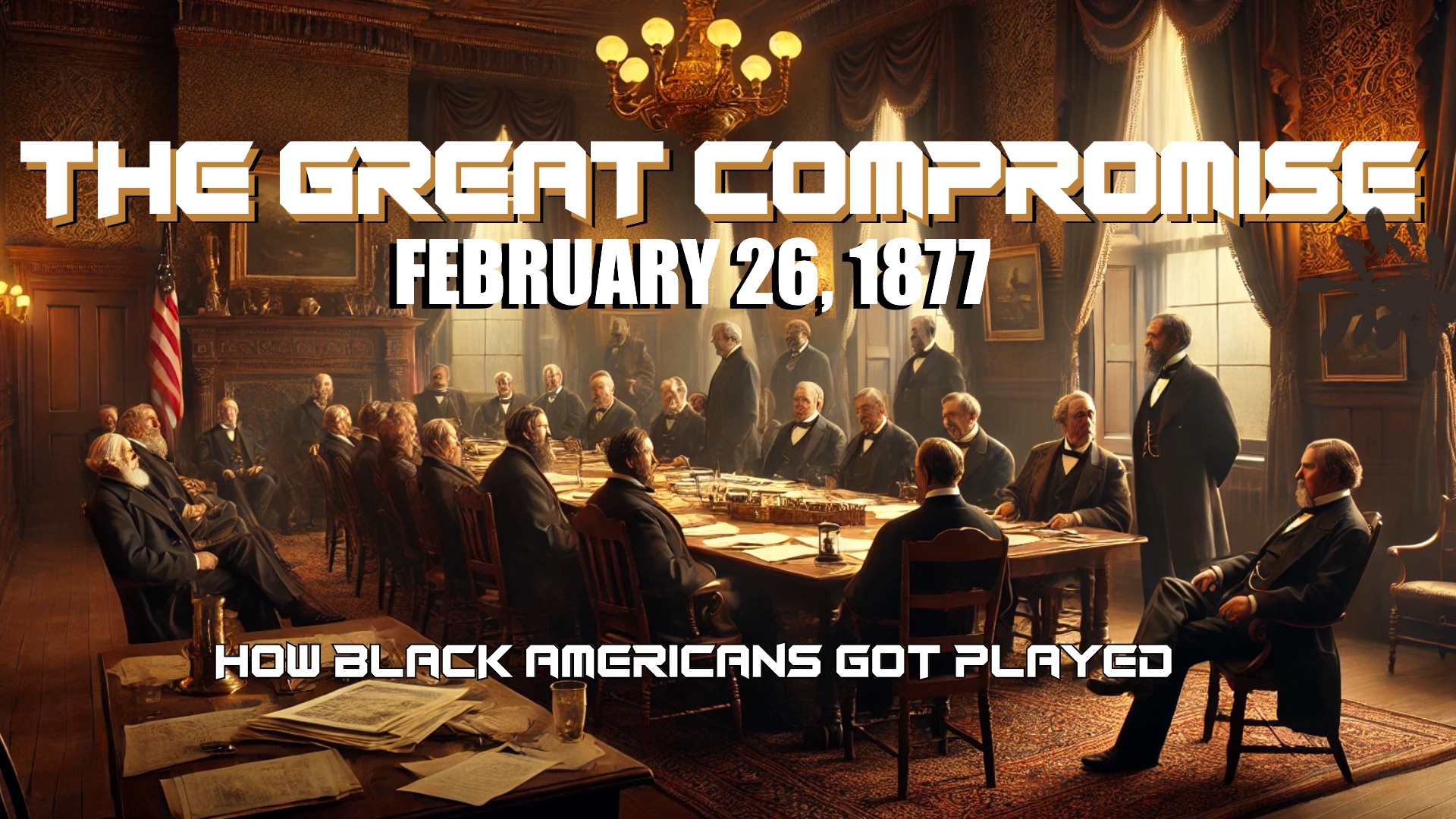The birth of Master Fard Muhammad (believed to have occurred on February 26, 1877, according to the Nation of Islam’s teachings) and his eventual role in founding the Nation of Islam (NOI) is seen as significant because it symbolizes a movement toward Black empowerment, unity, and liberation. To explore how this connects to the Wormley Conference (also known as the Compromise of 1877), we must understand the historical context and how the NOI’s mission contrasted with the outcomes of that agreement.
1. The Wormley Conference (Compromise of 1877)
The Wormley Conference was a behind-closed-doors political deal that resolved the disputed U.S. presidential election of 1876 between Rutherford B. Hayes (Republican) and Samuel J. Tilden (Democrat).
The Outcome:
• Rutherford B. Hayes became president.
• In exchange, federal troops were withdrawn from the South, ending the era of Reconstruction.
• This deal effectively abandoned Black Americans to Jim Crow laws, racial violence, and disenfranchisement, reversing many Reconstruction-era gains such as civil rights protections and political representation.
The Compromise of 1877 marked a devastating setback for Black Americans, as it paved the way for nearly a century of segregation, lynching, and systemic oppression.
2. The Birth of Master Fard Muhammad (February 26, 1877)
Master Fard Muhammad, later regarded as the Mahdi (savior) and founder of the Nation of Islam, was believed to have been born on the same date as the Wormley Conference—February 26, 1877. This symbolic timing highlights a direct spiritual and ideological counterpoint to the Compromise of 1877.
Master Fard Muhammad’s Mission:
• Arriving in Detroit in 1930, Master Fard Muhammad preached a message of Black self-empowerment, self-reliance, and liberation.
• He taught that Black people, particularly in America, were the original people and had been deliberately oppressed through systemic racism and mental slavery.
• Through his teachings, he laid the foundation for the Nation of Islam, appointing Elijah Muhammad as his successor to carry out the mission.
3. Disruption of the Wormley Conference’s Legacy
The Compromise of 1877 solidified Black political and economic oppression, but the emergence of Master Fard Muhammad and the NOI decades later disrupted the intended effects of that agreement in several ways:
1. Counteracting Mental and Cultural Enslavement:
• While the Compromise reinforced racial subjugation, Master Fard Muhammad introduced ideas of Black pride, identity, and empowerment, challenging the psychological and spiritual chains imposed on Black Americans.
2. Promoting Economic Independence:
• Master Fard Muhammad’s teachings emphasized self-reliance and economic autonomy, urging Black people to create businesses, support one another, and build independent communities—counteracting the dependency enforced by Jim Crow policies.
3. Reclaiming Black Identity and History:
• The NOI rejected narratives of inferiority perpetuated after the Wormley Conference. Master Fard Muhammad taught that Black people were the original builders of civilization, inspiring dignity and confidence.
4. Challenging the Status Quo:
• While the Compromise aimed to suppress Black political agency, the teachings of the NOI and its leaders (like Elijah Muhammad and later Malcolm X) fostered a spirit of resistance, organization, and challenge to systemic oppression.
4. Symbolic Timing of February 26, 1877
The timing of Master Fard Muhammad’s birth is seen as highly symbolic by the NOI:
• The Wormley Conference represented betrayal and abandonment of Black Americans.
• Master Fard Muhammad’s birth on the same day signifies the beginning of a spiritual and ideological counterforce to that betrayal.
His emergence decades later provided a blueprint for Black Americans to reclaim their autonomy, resist oppression, and restore their cultural identity, directly opposing the systems established under the Compromise of 1877.
Conclusion
The birth of Master Fard Muhammad on February 26, 1877, symbolically disrupted the long-term effects of the Wormley Conference by inspiring a movement rooted in Black unity, empowerment, and liberation. While the Wormley Conference marked the beginning of systemic oppression in the post-Reconstruction era, Master Fard Muhammad’s teachings challenged these systems, empowering Black Americans to reject mental enslavement and reclaim their identity and agency. This ideological and spiritual awakening stands as a powerful counterpoint to the historical betrayal embodied by the Compromise of 1877.

MASTER FARD MUHAMMAD CAME TO DELIVER AND EMPOWER BLACK AMERICANS AGAINST WICKED PLANS THAT WERE PUT IN PLACE TO STOP OUR RISE. HE TAUGHT THE HONORABLE ELIJAH MUHAMMAD 3 YEARS AND 4 MONTHS AND ASSIGNED HIM THE MISSION TO RESURRECT US FROM A MENTAL, MORAL AND SPIRITUAL DEATH. LIKE JEHOVAH DID FOE MOSES IN EGYPT AGAINST PHAROAH.

The comparison between Moses (from the Bible) and Elijah Muhammad (leader of the Nation of Islam) often arises in discussions about their roles as leaders, liberators, and guides for oppressed peoples. While their contexts, teachings, and spiritual frameworks differ, there are several thematic parallels between the two figures:
1. Leadership of an Oppressed People
• Moses: Moses was chosen by God to lead the Israelites out of slavery in Egypt (Exodus 3:7-10). He served as a deliverer, guiding the Israelites to freedom and toward their promised land.
• Elijah Muhammad: Elijah Muhammad is seen as a leader who guided African Americans during a time of systemic oppression and racial inequality. He led the Nation of Islam (NOI) and promoted self-sufficiency, pride, and independence for Black people in America.
2. Divine Mission
• Moses: Moses received a direct commission from God at the burning bush (Exodus 3), where God instructed him to confront Pharaoh and demand the liberation of His people.
• Elijah Muhammad: Elijah Muhammad claimed that his mission was divinely inspired through his mentor, W.D. Fard Muhammad, whom he referred to as “Allah in person.” He believed his role was to awaken, educate, and lead African Americans toward spiritual and social liberation.
3. Deliverance and Liberation
• Moses: Moses led the Israelites on the journey out of Egypt, symbolizing freedom from physical bondage and spiritual oppression. He emphasized following God’s commandments to achieve a righteous life.
• Elijah Muhammad: Elijah Muhammad preached a form of spiritual and mental liberation, encouraging African Americans to break free from the mental and cultural “slavery” imposed by systemic racism. He emphasized self-reliance, economic empowerment, and reclaiming a Black identity.
4. Teachings and Laws
• Moses: Moses received the Ten Commandments and the Mosaic Law, which provided a moral and legal framework for the Israelites (Exodus 20).
• Elijah Muhammad: Elijah Muhammad introduced teachings rooted in Black empowerment, discipline, and self-improvement, including dietary laws (e.g., avoiding pork), clean living, and moral codes. His book, “Message to the Blackman,” serves as a guide for followers.
5. Rejection and Opposition
• Moses: Moses faced opposition from Pharaoh, the Egyptian authorities, and even from some Israelites who doubted his leadership during their journey (Exodus 14:10-12).
• Elijah Muhammad: Elijah Muhammad encountered significant opposition from mainstream America, other Black leaders, and some critics within the Black community due to the controversial elements of his teachings.
6. A Message of Identity and Unity
• Moses: Moses helped the Israelites rediscover their identity as God’s chosen people, uniting them under a shared spiritual and cultural purpose.
• Elijah Muhammad: Elijah Muhammad encouraged African Americans to embrace their identity as the “Original People” and promoted a collective sense of pride, unity, and independence.
7. Preparation for Successors
• Moses: Moses prepared Joshua to lead the Israelites into the Promised Land after his death (Deuteronomy 31:7-8).
• Elijah Muhammad: Elijah Muhammad prepared the foundation for leaders such as Malcolm X and later Louis Farrakhan, who carried forward the Nation of Islam’s message and adapted it for new generations.
Summary of Congruencies
Theme Moses Elijah Muhammad
Leadership of the Oppressed Led Israelites out of slavery in Egypt Guided African Americans to empowerment
Divine Mission Called by God to liberate his people Saw himself as divinely inspired
Deliverance Physical and spiritual liberation Mental, spiritual, and economic freedom
Teachings/Laws The Ten Commandments Teachings on clean living and discipline
Rejection Opposition from Pharaoh and Israelites Opposition from critics and authorities
Identity & Unity Rediscovery of Israelite identity Rediscovery of Black identity
Successors Prepared Joshua Laid foundations for Malcolm X, Farrakhan
Conclusion
The congruencies between Moses and Elijah Muhammad revolve around their roles as liberators, spiritual guides, and reformers for oppressed people. Moses led the Israelites to freedom and moral order under God, while Elijah Muhammad sought to awaken African Americans to their identity, unity, and self-sufficiency in a racially oppressive society. Both figures are seen as pivotal leaders who delivered messages of hope, discipline, and empowerment to their respective communities.

Minister Louis Farrakhan, as the leader of the Nation of Islam (NOI) since the late 1970s, plays a significant role in addressing the lingering effects of the Compromise of 1877. His leadership, teachings, and activism are seen as a continuation of the mission set forth by Master Fard Muhammad and Elijah Muhammad: empowering Black people to overcome systemic oppression, reclaim their identity, and build economic and social independence.
To understand this connection, it’s important to revisit the Compromise of 1877, which marked the withdrawal of federal troops from the South, abandoning Black Americans to a century of Jim Crow laws, racial violence, disenfranchisement, and economic suppression. Minister Farrakhan’s work directly challenges these effects through the following key roles:
1. Counteracting Economic Disenfranchisement
The Compromise of 1877 led to Black people being systematically locked out of economic opportunities, as land ownership, jobs, and wealth-building were stripped away under Jim Crow policies.
• Farrakhan’s Role:
• Farrakhan continues Elijah Muhammad’s call for economic self-reliance among Black Americans.
• He advocates for the creation of Black-owned businesses, land ownership, and cooperative economic systems within Black communities to reduce dependency on systems designed to oppress.
• Programs such as “Do for Self” encourage financial independence and entrepreneurship, a direct countermeasure to the economic stagnation imposed post-1877.
2. Restoring Identity and Pride
The Compromise solidified white supremacy as the dominant ideology in America, eroding Black pride and cultural identity. Black Americans were subjected to systemic narratives of inferiority.
• Farrakhan’s Role:
• Farrakhan emphasizes the restoration of Black dignity, history, and identity, echoing Master Fard Muhammad and Elijah Muhammad’s teachings that Black people are the original people of the Earth.
• By uplifting the cultural and spiritual identity of Black people, Farrakhan combats the psychological effects of systemic oppression reinforced since 1877.
3. Addressing Political Disenfranchisement
The Compromise of 1877 led to the disenfranchisement of Black voters, the collapse of Reconstruction-era political gains, and the exclusion of Black leaders from political power.
• Farrakhan’s Role:
• While not focused on mainstream politics, Farrakhan stresses the importance of self-determination and independent political organization.
• His call for unity and collective political awareness empowers Black communities to hold elected officials accountable and advocate for their own interests.
• Farrakhan has also inspired grassroots movements that emphasize community control and empowerment, a significant response to the exclusion post-1877.
4. Challenging Racial Oppression and Jim Crow Legacy
The Compromise allowed the South to reinstate oppressive systems, including racial violence, segregation, and lynching, which persisted for decades.
• Farrakhan’s Role:
• Farrakhan fearlessly calls out systemic racism, government policies, and the legacy of white supremacy.
• He amplifies issues such as police brutality, mass incarceration, and economic inequity, all of which have roots in the post-1877 era.
• Through events like the Million Man March in 1995, Farrakhan united millions of Black men in a call for accountability, justice, and social reform.
5. Rebuilding Unity and Family Structure
Post-1877 policies devastated Black families through poverty, systemic violence, and forced migrations.
• Farrakhan’s Role:
• Farrakhan emphasizes unity, family values, and moral discipline, advocating for strong Black families as the foundation of a thriving community.
• Programs within the NOI promote marriage, responsible parenting, and support systems that counter the fragmentation imposed historically.
6. Spiritual and Moral Awakening
The spiritual disconnect caused by systemic oppression post-1877 played a major role in keeping Black Americans marginalized.
• Farrakhan’s Role:
• Farrakhan combines spiritual guidance with calls for social and economic liberation, teaching that faith in God and self-empowerment are intertwined.
• His work through the Nation of Islam fosters spiritual resilience, encouraging Black people to resist oppression through faith, discipline, and collective action.
7. Symbolic and Practical Leadership
The withdrawal of federal protections in 1877 left Black Americans vulnerable to unchecked violence and exploitation. Leadership and protection were essential for survival.
• Farrakhan’s Role:
• Farrakhan fills the void as a powerful, charismatic leader who speaks truth to power, providing both symbolic hope and practical solutions for Black empowerment.
• His speeches and initiatives inspire Black Americans to organize, unify, and resist systemic oppression.
Conclusion
Minister Louis Farrakhan’s importance lies in his role as a modern-day disruptor of the systemic effects of the Compromise of 1877. While the Compromise cemented racial oppression, disenfranchisement, and economic exclusion for Black Americans, Farrakhan’s leadership within the Nation of Islam counters these legacies by promoting self-reliance, cultural pride, unity, and economic empowerment.
His teachings and activism serve as a response to the long-standing effects of post-Reconstruction betrayal, offering a path for Black Americans to reclaim agency, dignity, and liberation in the face of historical and systemic challenges.

Leave a Reply